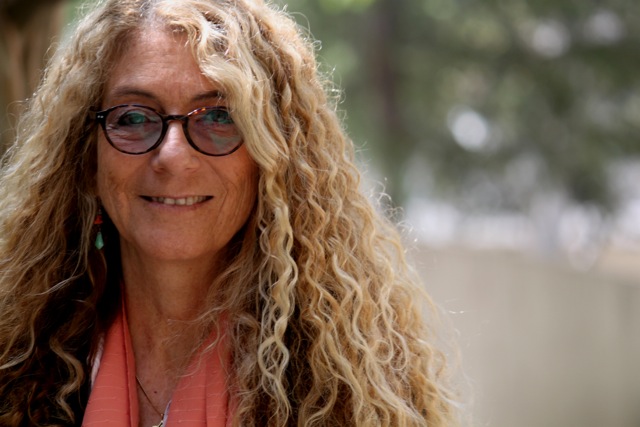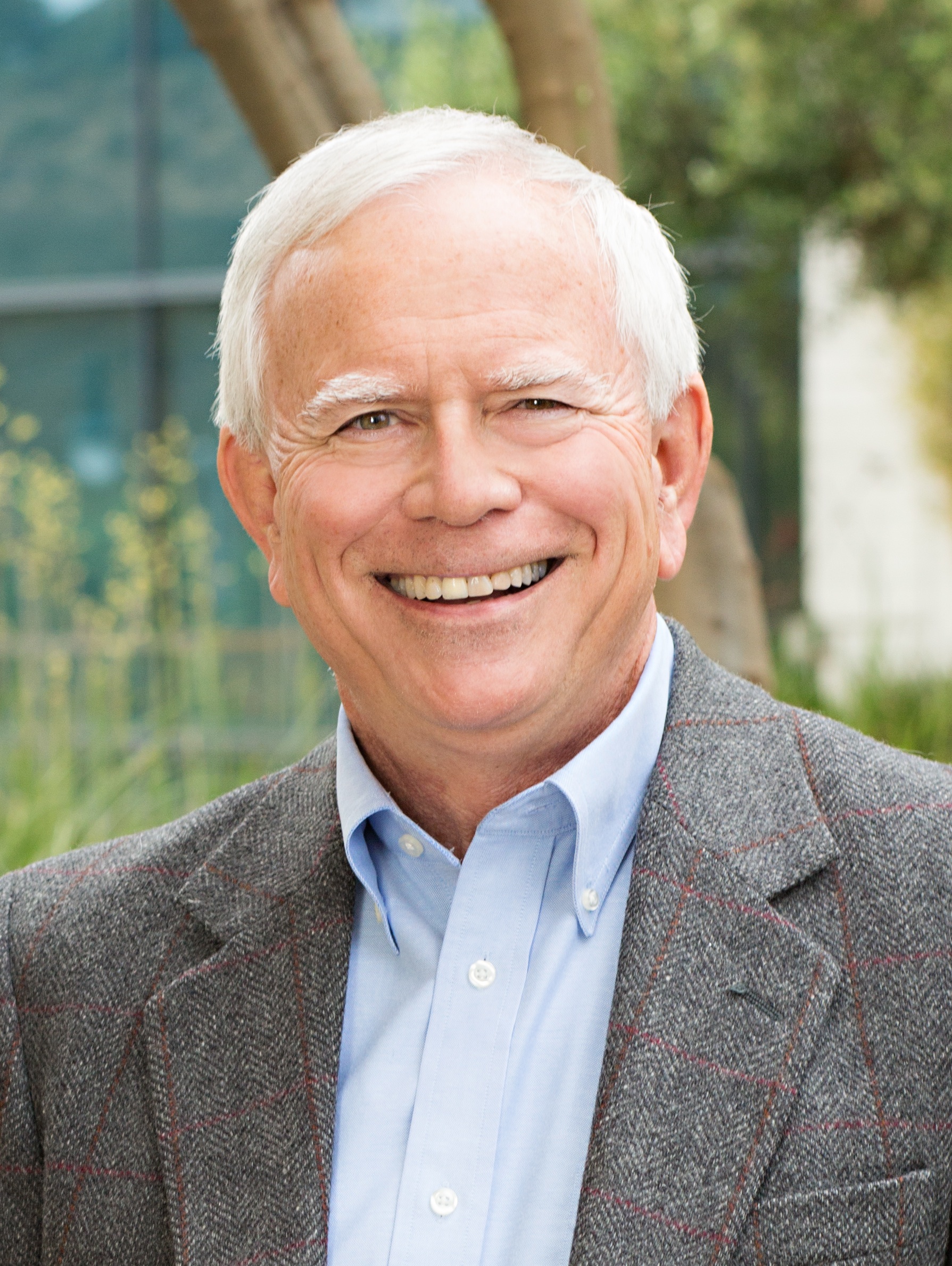SC CTSI Supports USC mHealth Collaboratory to Realize New Health Paradigms with Mobile Technology
The initiative will foster transdisciplinary team building within and beyond USC and support researchers’ mHealth efforts.
Scheduled to launch in August, the USC mHealth Collaboratory was established to enable USC to drive development in the accelerating field of mobile and connected health (mHealth).
The Collaboratory will serve as a nexus for related information, research, and collaboration between disciplines and institutions, according to Donna Spruijt-Metz, PhD, director of the mHealth Collaboratory at the Dornsife Center for Economic and Social Research, and visiting associate professor of Preventive Medicine at Keck School of Medicine of USC.
"Our primary goal is to bring together researchers and partners with various strengths from all over USC and beyond who are interested in exploring mHealth technology and leading advances in research, well-being and health care through mobile strategies." said Spruijt-Metz.
Among its initial efforts, the mHealth Collaboratory will help researchers launch new mHealth projects, organize networking events to link potential collaborators, and work with education programs to train in the transdisciplinary science of mHealth research.
The mHealth Collaboratory will continue and expand upon the work begun by the Center for Interactive Media Technologies in Healthcare at USC (CIMTH). The two groups were merged.
The Collaboratory is supported by a grant from the USC Research Collaboration Fund offered through the USC Office of Research. “Advances in mobile health will depend on synergies among disciplines, which is exactly where the mHealth Collaboratory is focused," said Randolph Hall, vice president of research at USC. "We see them as crucial to USC's goal to be a leader in mHealth."
Goals of USC mHealth Collaboratory
- Foster mobile and connected health research at USC that develops and tests new ways to study health-related behaviors and support patient-centered health care
- Incubate new ideas and facilitate creative information exchange among USC's faculty, staff, and students
- Develop resources that will help investigators jumpstart mHealth projects
- Work with departments to provide training in transdisciplinary teamwork
- Work with USC healthcare providers to develop two-way dialog that matches technology with clinical needs
- Reach across institutions to develop West Coast mHealth Consortium
Contact for researchers and partner organizations interested in the USC mHealth Collaboratory: Donna Spruijt-Metz at dmetz@usc.edu
Untapped Potential to Improve Clinical Research and Health Care Interventions
The National Institutes of Health (NIH) and the global clinical research community are increasingly embracing mHealth for its numerous advantages over traditional data collection and research methodologies.
However, the potential for new and powerful uses of mobile technology has only begun to be tapped, and the coming years will see accelerating innovation, said William Swartout, co-director of the mHealth Collaboratory, professor in the USC Viterbi School of Engineering Computer Science Department, and chief technology officer at the USC Institute for Creative Technologies (ICT).
"There's a convergence of technologies out there that is giving us opportunities to collect data and conduct interventions that we never could before," added Swartout. "The mHealth Collaboratory is needed to ensure that experts from different disciplines can come together to combine their knowledge of what's possible with what's needed in wellness, prevention and clinical research and lifestyle as well as health care interventions."
The reach of the mHealth Collaboratory will extend beyond the USC community and even academia. The Collaboratory is in the process of developing a West Coast mHealth Consortium with other research institutions in California and elsewhere. "We see important benefits for mHealth as a public-private partnership. We will develop these relationships with the IT community," said Spruijt-Metz.
Some of the main research that the Collaboratory will foster include: the deployment and testing of new and existing technologies to understand and change health-related behaviors and to support patient-centered health care, redesigning current ‘static’ paper or internet-based programs, such as virtual reality-based exposure therapy to treat PTSD, for mobile platforms, assistance to junior faculty who have mHealth ideas but no access to programmers or infrastructure to jumpstart their research.
Potential benefits and uses of mHealth
- New, heretofore unprecedented and yet to be imagined ways of approaching health and wellness.
- Revolutionized communications among health care providers and health care recipients
- Real-time, personalized, adaptive interventions
- Support for continuous, real-time, health monitoring and health care at both individual and population level
- Increased reach and quality of care
- New ways to reach underserved populations across the globe
- Reduced cost of health care
- Improved health outcomes
- Prolonged independent living
The USC mHealth Collaboratory steering committee includes Cesar Blanco (AMI), Marientina Gotsis (Cinema), Leslie Saxon and Heather Wiplfi (Keck School of Medicine), and Cyrus Shahabi (Viterbi School of Engineering), with Katja Reuter (SC CTSI liaison).
Additional support for the mHealth Collaboratory is provided by the USC Dornsife Center for Economic and Social Research, the Institute for Creative Technologies (ICT), and the Southern California Clinical and Translational Science Institute (SC CTSI).
The USC mHealth Collaboratory website will go live in August. Please contact Donna Spruijt-Metz (dmetz@usc.edu) to join the Collaboratory and sign up for the listerv.
Arthur Stone, Norbert Schwarz, and Daphna Oyserman from the Department of Psychology, H. Chad Lane, Randy Hill, and Albert "Skip" Rizzo from the Institute of Creative Technologies, Holly Willis from Cinematic Arts, Carolee Winsteen from (Motor Behavior and Neurorehabilitation Laboratory, USC Keck School of Medicine), Maryalice Jordan-Marsh and Charles Kaplan from The School of Social Work, Maja Mataric and Murali Annavaram from the Viterbi School of Engineering, Terry Sanger and George Tolomiczenko from HTE@USC, Ashlesha Datar, Bas Weerman, Arie Kapetyn, Titus Galama and Joan Broderick from the Center for Economic and Social Research, Wei-An “Andy” Lee, Elahe Nezami, Genevieve Dunton, Jimi Huh, Jon Samet and Frank Gilliland from the Keck School of Medicine, Peter Clarke and Susan Evans from the Annenberg School of Communication.





